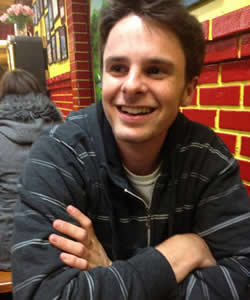“It was the worst day of my life,” said S* as we barreled through the desert highway in the back seat of a Ford Explorer on our way back to Amman. We had just left Za’atari Refugee Camp, home to 85,000 Syrian refugees and located along the Jordan-Syria border, where S has been a resident the past three years.
S was describing the night he fled Bosra-al-Sham, his hometown in Syria, with his family in 2011. At age 22, S is the only member of his immediate family still in the camp because his expired passport has restricted him from joining them in Algeria, where they moved to find work soon after arriving in Jordan.
After befriending a humanitarian worker in the camp, S has been able to obtain exit papers a couple times a month to leave and spend a few days of respite in Amman at the worker’s house. This day was one of those occasions.
After only three weeks in Jordan, I’ve had no trouble seeing the tragic consequences of the various refugee crises affecting the country. As a well-off, idealistic, Western college student, I should be imbued with an unbridled passion to save the world after registering the shock, anger, and frustration caused by these experiences, right? In reality, though, my reaction has been more meek speechlessness. It’s like I’ve stuck my head into the “World Reality-Check Bell” and have been deafened by the wringing.
David Brooks writes about a concept he calls “epistemological modesty.” Brooks describes this as “the knowledge of how little we know and can know.” I would love to write about how my horizons have been broadened and how inspired I now am to change the situations to which I have been exposed, but I feel more deflated than anything. Let’s face it: how thorough of an understanding, and how real of an impact can I, as a Western college student visiting for four months, have on these people’s lives?
While this reality is frustrating for us School of Foreign Service students who want to be the next generation of global visionaries, I would actually argue that in the process of embracing the reality that our worldviews will forever face limits we broaden our capacities to have real impacts on these situations.
Students seeking to gain a broader understanding of the world through study abroad experiences should approach the experiences with energy, passion, and adventure, but with the recognition that people are better served when we don’t kid ourselves into believing that we will ever develop a full understanding of the situations we are hoping to improve.
I’ll return to the United States in a few months and throw myself right back in to the career-dominated culture of an American college campus. While he will remain in Za’atari, S has the dream of being a pilot someday. As we pulled out of the camp, he turned to me and remarked, “It’s like leaving a prison, no?”
*To respect his anonymity, I refer to this individual as “S.”

